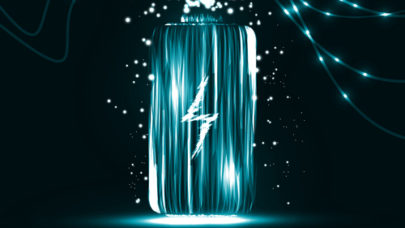
Argonne’s 44-Petaflops ‘Polaris’ Supercomputer Will Be Testbed for Aurora, Exascale Era
August 25, 2021
A new 44-petaflops (theoretical peak) supercomputer is under construction at the Department of Energy’s Argonne National Laboratory. Called Polaris, this new Read more…

Exascale Aurora System Will Visualize Spreading Cancer
April 1, 2021
Aurora, to be hosted by Argonne National Laboratory, is one of three planned exascale-class systems in the U.S. While the Intel-led system has encountered a variety of conceptual transformations (it was originally planned as a pre-exascale system) and setbacks... Read more…

ALCF and U Chicago Researchers Advance ‘Lithium Air’ Battery Technology
March 27, 2018
The lithium ion battery, which essentially transformed portable electronics, has been a tough act to follow. Last week, researchers from Argonne National Labora Read more…

ALCF’s Paul Messina on the Code Optimization Path to Exascale
September 14, 2015
To borrow a phrase from paleontology, the HPC community has historically evolved in punctuated equilibrium. In the 1970s we transitioned from serial to vector a Read more…

ALCF Summer Program Offers Unique Experience
September 3, 2015
Comprising one half of the U.S. Department of Energy’s (DOE) Leadership Computing Facility, the Argonne Leadership Computing Facility (ALCF) operates a superc Read more…

Application Readiness at the DOE, Part III: Argonne Ramps Up Early Science Program
April 20, 2015
In our third and final video from the HPC User Forum panel (The Who-What-When of Getting Applications Ready to Run On, And Across, Office of Science Next-Gen L Read more…

Application Readiness at the DOE, Part II: NERSC Preps for Cori
April 17, 2015
In our second video feature from the HPC User Forum panel, "The Who-What-When of Getting Applications Ready to Run On, And Across, Office of Science Next-Gen L Read more…

Argonne’s Paul Messina on Training for Extreme-Scale
March 12, 2015
Paul Messina, director of science for the Argonne Leadership Computing Facility (ALCF), discusses the primary objectives, curriculum and importance of the Argon Read more…

- Click Here for More Headlines

Whitepaper
Transforming Industrial and Automotive Manufacturing
In this era, expansion in digital infrastructure capacity is inevitable. Parallel to this, climate change consciousness is also rising, making sustainability a mandatory part of the organization’s functioning. As computing workloads such as AI and HPC continue to surge, so does the energy consumption, posing environmental woes. IT departments within organizations have a crucial role in combating this challenge. They can significantly drive sustainable practices by influencing newer technologies and process adoption that aid in mitigating the effects of climate change.
While buying more sustainable IT solutions is an option, partnering with IT solutions providers, such and Lenovo and Intel, who are committed to sustainability and aiding customers in executing sustainability strategies is likely to be more impactful.
Learn how Lenovo and Intel, through their partnership, are strongly positioned to address this need with their innovations driving energy efficiency and environmental stewardship.
Download Now
Sponsored by Lenovo
Whitepaper
How Direct Liquid Cooling Improves Data Center Energy Efficiency
Data centers are experiencing increasing power consumption, space constraints and cooling demands due to the unprecedented computing power required by today’s chips and servers. HVAC cooling systems consume approximately 40% of a data center’s electricity. These systems traditionally use air conditioning, air handling and fans to cool the data center facility and IT equipment, ultimately resulting in high energy consumption and high carbon emissions. Data centers are moving to direct liquid cooled (DLC) systems to improve cooling efficiency thus lowering their PUE, operating expenses (OPEX) and carbon footprint.
This paper describes how CoolIT Systems (CoolIT) meets the need for improved energy efficiency in data centers and includes case studies that show how CoolIT’s DLC solutions improve energy efficiency, increase rack density, lower OPEX, and enable sustainability programs. CoolIT is the global market and innovation leader in scalable DLC solutions for the world’s most demanding computing environments. CoolIT’s end-to-end solutions meet the rising demand in cooling and the rising demand for energy efficiency.
Download Now
Sponsored by CoolIT
Advanced Scale Career Development & Workforce Enhancement Center
Featured Advanced Scale Jobs:
HPCwire Resource Library
HPCwire Product Showcase
© 2024 HPCwire. All Rights Reserved. A Tabor Communications Publication
HPCwire is a registered trademark of Tabor Communications, Inc. Use of this site is governed by our Terms of Use and Privacy Policy.
Reproduction in whole or in part in any form or medium without express written permission of Tabor Communications, Inc. is prohibited.
























